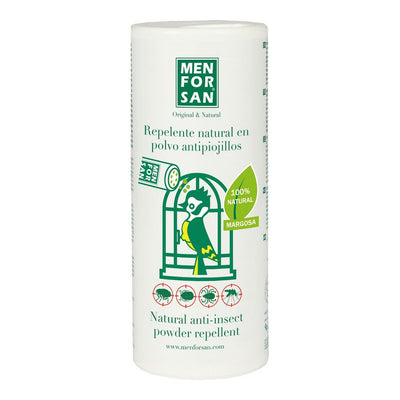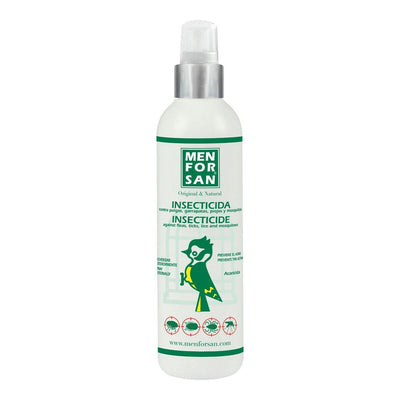
Health articles
What should I buy to keep my birds healthy? The best bird products at All4Pets
The optimal health of your feathered friends is every bird owner's top priority. While regular veterinary exams are crucial, there are also important things you can incorporate into your home to promote the well-being of your bird companions. In this article, we'll look at a range of pet bird health products, from nutritional supplements to environmental improvements, to ensure your birds thrive in your home.
Dietary supplements
Ensuring your birds receive a balanced diet is essential. However, there are cases where additional nutritional support is essential. Here's a breakdown of the top supplements that can improve your bird's health:
Bird-Specific Multivitamins
A balanced diet is a cornerstone of bird care. However, despite our best efforts, birds can experience nutritional deficiencies. Address this problem by including bird-safe multivitamins in the diet. Opt for bird-specific formulations to tailor the supplement to your bird's individual needs.
Calcium supplements
The importance of calcium in maintaining optimal bone health in birds cannot be overemphasized. This is particularly important for breeding or laying females, as calcium deficiency can lead to serious health problems. To bolster their diet, consider taking a calcium supplement to ensure your feathered companions receive the support they need for strong and healthy bones.
Omega-3 fatty acids
Boost your bird's immune system and contribute to vibrant feather health by including omega-3 fatty acids in its diet. These essential nutrients can be obtained from dietary supplements such as fish oil or flaxseed oil. Omega-3 fatty acids play a crucial role in promoting overall well-being and are therefore a valuable addition to your bird's diet.
Cage and environment
Creating a comfortable habitat for your bird companion requires more than just a cage. Here's how you can improve your environment:
- Appropriate size cage
Make sure your bird has enough room to move and expand its wings. A spacious cage is not just a necessity; It's a stress buster! This promotes physical activity, prevents boredom and promotes physical and mental well-being.
- Natural perches
Vary your bird's perch experience. Offer a variety of types and sizes to train your nimble feet. Natural wood perches in particular provide comfortable and authentic support, contributing to your bird's overall comfort.
- Safe toy
Choose toys that not only encourage physical activity but also stimulate your bird's intellect. Choose toys made from bird-safe materials to ensure their well-being is never compromised while playing.
Cleanliness and hygiene
Choose cleaning products designed specifically for bird safety and avoid using harsh chemicals that could potentially harm your feathered friends. Improve the air quality in your environment by investing in an air purifier, an especially valuable addition for birds that are sensitive to dust and pollutants. Equally important is establishing a consistent cleaning routine for your bird's cage to prevent the buildup of harmful bacteria and ensure a consistently healthy and pristine habitat for your valued bird companion. This commitment to cleanliness contributes significantly to your feathered friend's overall well-being and happiness.
Medical kit for birds
To ensure the well-being of your feathered friend, you must have comprehensive medical equipment:
- Bird-safe first aid kit
Prepare an individual first aid kit with essentials such as styptic powder for bleeding nails, antiseptic wipes and bandages. Work with your veterinarian to tailor the kit to your bird's individual needs and ensure you are well prepared for any unforeseen health issues.
- Bird thermometer
Keep an eye on your bird's health by using a special bird thermometer. Even minor temperature fluctuations can indicate underlying health problems and allow for early intervention and care.
- Beak and nail trimmer
Promote your bird's overall well-being through regular grooming with specialized trimmers. This preventive measure keeps beak and nail overgrowth at bay, reduces the risk of possible injuries, and contributes to the well-being and health of your feathered companion.
FAQs
1. How often should I give my bird supplements?
It is important to follow the recommended dosage on the supplement package or your veterinarian's advice. An overdose can be harmful. Therefore, always consult a professional.
2. Can I use regular cleaning products on my bird's cage?
No, many household cleaners contain chemicals that can be toxic to birds. Invest in bird-safe cleaning solutions or ask your veterinarian for recommendations.
3. Do birds need different types of perches?
Yes, offering different types of perches (natural wood, rope, etc.) will help exercise different muscles in your bird's feet and prevent foot problems.
4. How do I know if my bird is stressed?
Signs of stress in birds include feather plucking, excessive vocalizations, changes in eating habits, and lethargy. If you notice these signs, contact your veterinarian.
5. Is it necessary to trim my bird's beak and nails regularly?
Yes, regular care prevents overgrowth that can cause discomfort and possible injury to your bird. Ask your veterinarian about the frequency of trimming.
6. Can I provide my bird with too many toys?
While a variety of toys are essential for mental stimulation, an overwhelming number of them can cause stress. Observe your bird's behavior and adjust toy selection accordingly.



